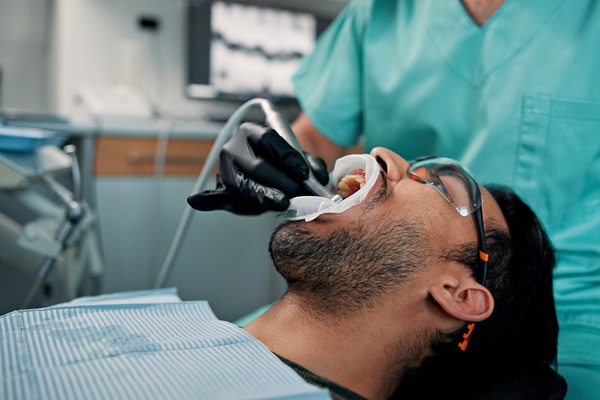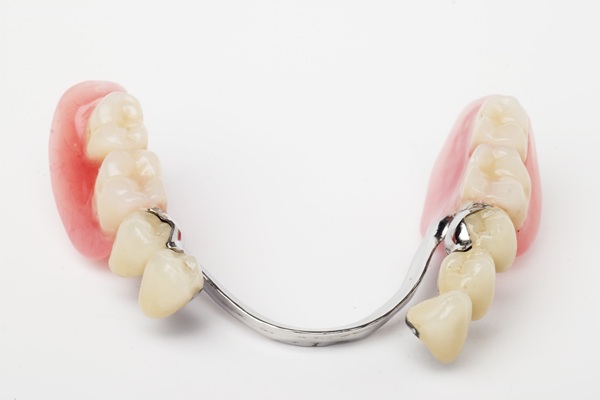Tips From a Family Dentist: How to Recover Fast After Tooth Extraction

Ordinarily, a family dentist tries to salvage a tooth if at all possible. This is usually better for a patient's overall dental health. However, sometimes it may be so severely damaged or decayed, or it causes other problems in the mouth, that tooth extraction is the only option.
There are two methods for extracting a tooth. A family dentist may be able to perform a simple extraction in the office using manual tools such as forceps. However, if the situation is more complicated, it may be necessary to have the tooth surgically removed.
In either case, the dentist or oral surgeon will take every necessary precaution to minimize the patient's discomfort during the procedure. This may involve the use of anesthetics. The provider will also make sure the patient has aftercare guidelines to follow after the procedure to aid recovery. The provided instructions should take precedence, but the family dentist may offer these tips to help patients recover quickly.
Foods to eat
It is important to keep up one's strength and stay hydrated following a tooth extraction. However, it is also necessary to avoid foods that could damage the removal site or put too much pressure on the jaw. It is best to stick to soft foods requiring minimal chewing, such as applesauce, yogurt and pudding.
Vitamin C and vitamin A help to support the healing process following a tooth extraction. Therefore, it is a good idea to eat foods rich in these nutrients. Examples include stewed carrots, mashed sweet potatoes, scrambled eggs and filleted fish.
Foods such as soups and smoothies may also be good to eat after a tooth is removed. However, patients should not consume foods that are too hot and should avoid eating anything containing large chunks that could get stuck in the hole left behind by the tooth.
Protocols to follow
The instructions a family dentist or oral surgeon provides after a tooth extraction outline what to do. They also warn what the patient should avoid.
What to do
A dentist or surgeon may prescribe medications after removing a tooth. The patient should take these as instructed. It is important for a patient to keep the mouth clean. However, it is also necessary to brush and rinse carefully to avoid dislodging any scab that may have formed over the extraction site.
Swelling may occur after the tooth is pulled. Patients can apply ice to the area to bring this down. It is important to take it easy and get plenty of rest.
What to avoid
Patients should avoid any activity that could cause overexertion or dislodge the scab. This includes not only strenuous exercise but also oral activities such as sucking, spitting or smoking. Alcohol should be avoided since it can interfere with the healing process. For up to two months after the surgery, patients should avoid eating foods that are too crunchy or hard, such as raw carrots, nuts or popcorn.
Conclusion
There are many factors that can affect the length of the recovery time following a tooth extraction. The more difficult the procedure, the longer the healing period may take. However, by following the advice of a family dentist or oral surgeon, patients may recover more quickly and avoid complications.
Request an appointment here: https://lincroftvillagedental.com or call Lincroft Village Dental Care at (732) 842-5005 for an appointment in our Lincroft office.
Check out what others are saying about our services on Yelp: Read our Yelp reviews.
Recent Posts
Deep dental cleaning is a way to treat severe cases of gum disease. However, it is not always necessary for all cases of gum disease. By understanding when and why a dentist recommends a deep dental cleaning, you can feel more comfortable throughout the consultation and treatment process. Every dentist utilizes deep dental cleaning differently and…
There are many benefits to removable partial dentures instead of alternative treatment solutions (i.e., implant-supported bridges). Understanding the advantages of partial dentures can help you make the most informed choice possible about the best way to replace your missing teeth.Removable partial dentures are a form of teeth replacement for a section of missing teeth. They…
Full mouth reconstruction involves replacing and repairing damaged or missing teeth. A treatment plan includes a variety of different treatments, and one common procedure is known as dental bridge treatment. This review takes a closer look at how general dentists use dental bridges to replace teeth during full mouth reconstruction. Most patients have several available treatment…
Experiencing a need for a denture repair? Unfortunately, dentures are extremely prone to accidents, which can result in damages such as cracks or chips. When this happens, a lot of wearers wonder what they should do next. The answer is simple, visit a dentist's office.Denture repair should always be done by a dentist, but why?…


